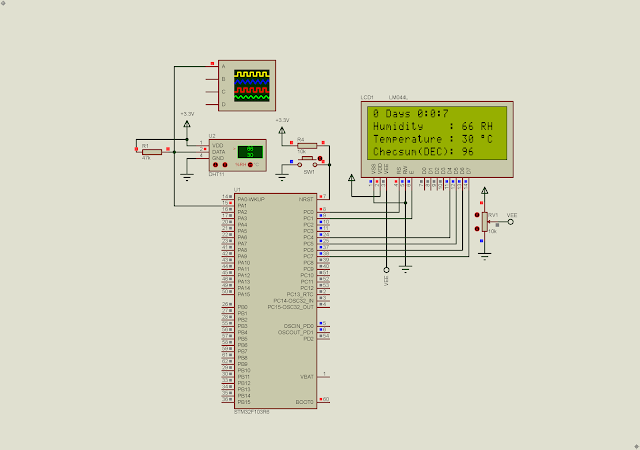UART can be interfaced with some module such as GSM, Bluetooth, Nextion display, GPS module, etc. Communicating with a PC via an RS-232 interface or a USB to UART converter module is common.
In this example, I will use a UART terminal to input ASCII characters that will send to the STM32F103R6 micro-controller. Those characters will display on a 20x4 LCD.
 |
| Simulating Program |
In the Code Configuration Tool, please set the following parameters.
 |
| GPIO Settings |
On SYS tab select Serial Wire as Debug interface if you wish to use the ST-Link.
 |
| Debug Tool Selection |
On USART1 tab select Asynchronous Mode to get UART.
 |
| UART Settings |
Source code is very easy to write with the aid of code configuration tool in the STM32CubeIDE. LCD library is already written in previous post.
For more information about USART1 and 4-bit LCD Interfacing please see my previous posts. Click here to download its source file.



